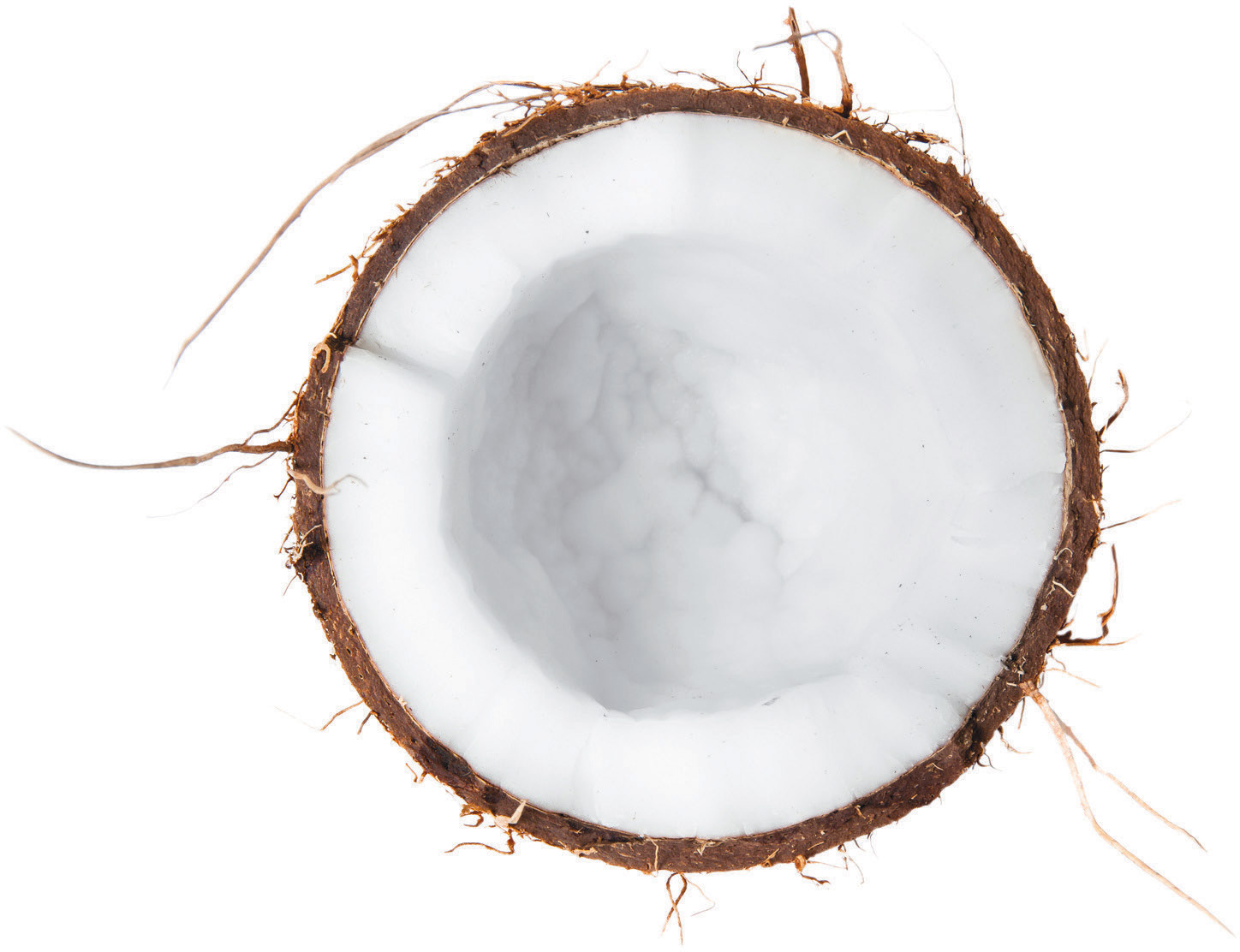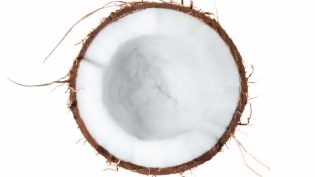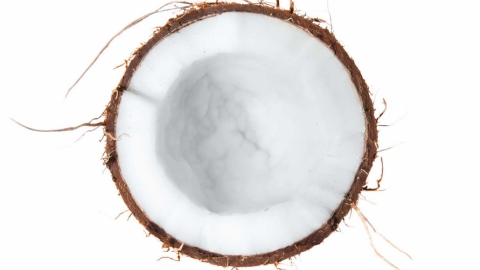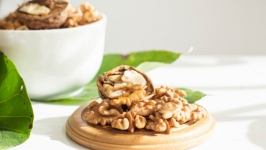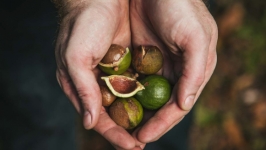Cracking the Nut
The nutrition and fiction behind the coconut
You won’t find coconuts growing in New Jersey, but one look in the grocery store may have you thinking otherwise. Coconuts and coconut products have staked their claim in the shopping aisles due to their rising fame as a “superfood.” Though there are many healthy aspects of consuming coconut, some factors ought to be heeded.
It’s worth noting that a coconut is not just a nut. “Botanically speaking, it can be classified as a fruit, nut and a seed,” says Anthony Dissen, a registered dietitian nutritionist and instructor of health science at Stockton University in Galloway. “For those with allergies to tree nuts, it may not necessarily mean they are allergic to coconuts as well,” he says, advising those with tree nut allergies to check with their doctor.
Adding to the uniqueness of this food is that there are several different parts of it you can enjoy: coconut “meat,” coconut water and coconut oil. Of the three, the meat is most nutritious.
“Fresh coconut or dried coconut flakes are very high in fiber, which is a non-digestible carbohydrate that promotes good bacteria in our large intestine,” he says. “Encouraging healthy bacteria to thrive in your microbiome makes for a healthy immune system.”
Aside from fiber, coconut is a good source of iron and is high in copper and manganese, which are both nutrients that don’t often get a lot of attention.
“Copper is important for metabolic functions in the body, both for overall metabolism [and] the growth and development [of ] organs like the brain and heart, as well as connective tissue and bones,” he says, adding that when it comes to bone health, coconut does much more.
“Manganese is helpful for the healthy formation of bone tissue,” he says. “Not only that, but it helps our body absorb calcium better. If you’re eating a calcium-rich, dark leafy green salad, adding some shredded coconut to it will help the calcium get where it’s supposed to go.”
That’s good food for thought, says Dissen, for those prone to osteoporosis.
Today, much attention has been focused on coconut oil, which is suddenly popular.
You don’t need to add coconut oil into
smoothies, or drink quarts of coconut water
just because it’s been labeled ‘healthy.’”
—Angela Langner,
Nutrition Center of Bergen County in Englewood
“The marketing of coconut oil depicts it as being a cure-all. But in reality, it’s not a whole food,” he says. “It is processed, and processed foods should be used thoughtfully.” Dissen advises.
On the bright side, coconut oil has a high smoking point, making it a popular choice for nonstick cooking.
“Since coconut oil has a high smoking point, it means you have less of a chance of consuming smoke through your food,” he says. “Smoke is a carcinogen, which causes inflammation in the body.”
Though coconut oil currently enjoys the limelight, the type of fat coconut contains has some avoiding it all together.
“One of the most controversial aspects of coconut is that it is high in saturated fat, and saturated fat has been linked to heart disease,” says Angela Langner of the Nutrition Center of Bergen County in Englewood, who notes that one cup of shredded coconut contains 119% of your recommended daily value. “The type of saturated fat in coconut, however, is different than that found in animal fats,” she says, explaining that coconut fat contains medium-chain triglycerides, which are processed easier by the body.
“Medium-chain triglycerides are still digestible, meaning that the saturated fat in coconut is not a cholesterol-raising fat. Longchain fats like those found in animal fats and dairy are ones that are more prone to raising your LDL cholesterol.”
Just because coconut oil is a healthier oil doesn’t mean you want to smother it on everything, Langner explains. “Carbohydrates, proteins and fats all give us calories, and fat calories can add up very quickly, causing weight gain.”
The same goes for coconut water, which, though a rich source of potassium and electrolytes, still contains sugar.
“Some coconut water brands add extra sugar as well as flavoring. It is OK to drink coconut water to help replenish fluids if you’ve been exercising and sweating a lot, but nothing should replace water when it comes to staying hydrated,” she says.
“Too much of a good thing isn’t good. You don’t need to add coconut oil into smoothies or drink quarts of coconut water just because it’s been labeled ‘healthy.’”
When it comes to adding coconut to your diet, experts advise that you stick to its most unprocessed form with little else added, and no matter how much it tempts your tropical taste buds, moderation is key.


